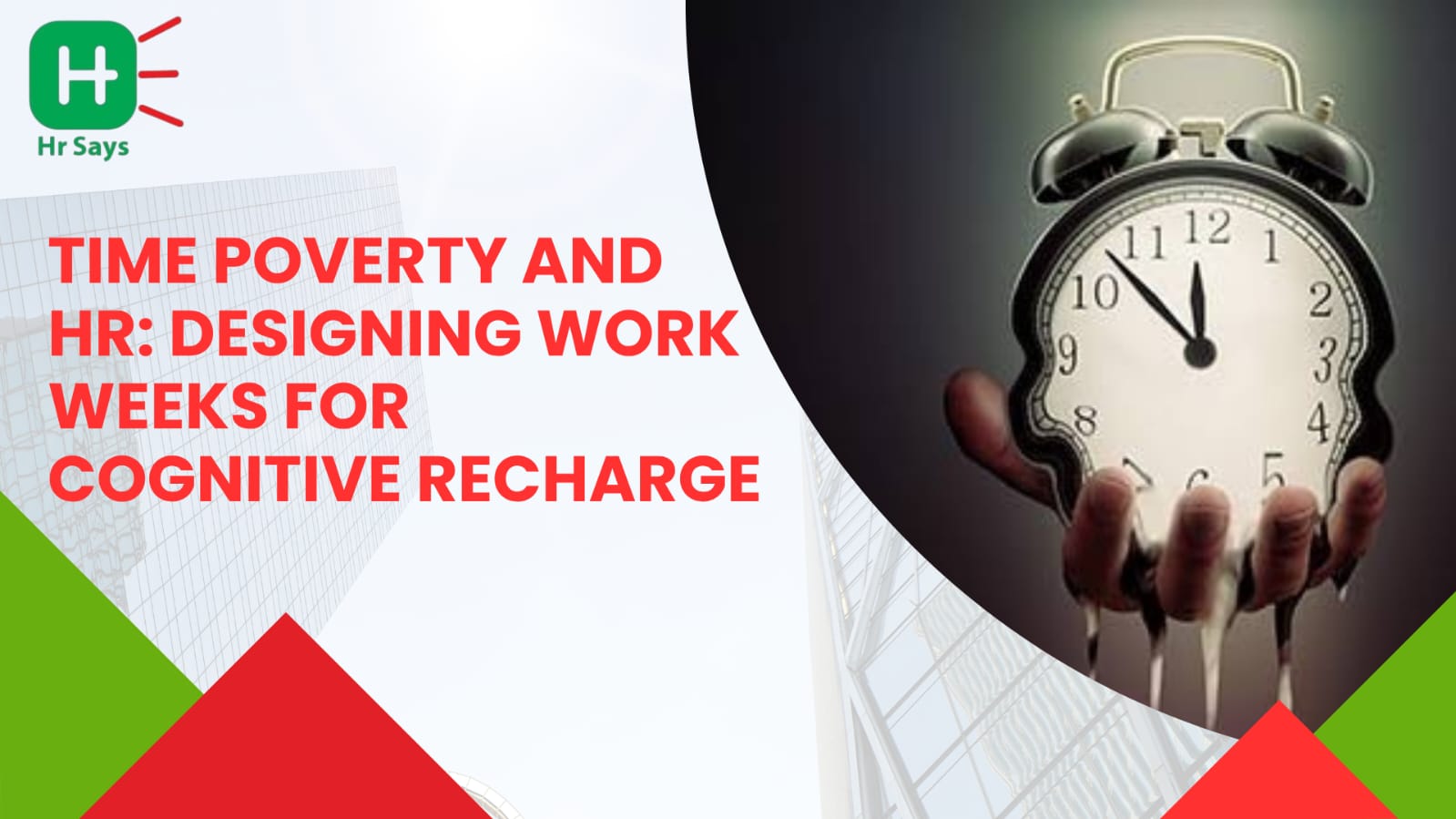What if being productive doesn’t mean being exhausted? The clock hasn’t changed—but workdays feel longer. Meetings pile up. Tasks drag late into the night. Somewhere in between, deep thinking disappears. And HR is being asked to fix it.
The Invisible Cost of Time Poverty
It creeps in quietly. Not measured in money, but in missed focus, skipped breaks, and unprocessed thoughts. Time poverty doesn’t just mean “not enough time.” It means no control over time.
● Creative thinking fades.
● Strategic focus weakens.
● Burnout rises, slowly and silently.
People show up—but mentally, they’re not there.
Time poverty doesn’t always scream. Sometimes, it just wears people down until they stop caring.
The Myth of 40 Hours
The 9-to-5 regime dominated the job market over the years. But that structure wasn’t built for thinking—it was built for factories.
Today’s work is different. It asks for:
● Complex problem solving
● Emotional intelligence
● Deep focus and idea generation
But instead, calendars are booked back-to-back. "Always available" has become the new normal. Cognitive fatigue follows. And real thinking? It gets pushed to “after hours.”
Designing for Recharge, Not Just Rest
Recharge is not rest. It’s about mental space—time to reflect, to step back, to breathe.
HR teams are slowly redesigning workweeks around this idea. Not just adding “wellness hours”
or Friday yoga. But shifting the rhythm of the week itself.
What that could look like:
● Meeting-free mornings for deep work
● Midweek breaks to reset the mind
● No-notification zones during creative hours
● Time blocks for solo thinking, not just team syncs
● End-of-day shutdown prompts—forcing a hard stop
The goal isn’t to work less. It’s to think better.
Why It Matters Now
In remote and hybrid work, lines blur. Employees are online, but mentally drained. They're
responding fast, but rarely thinking deep.
Productivity looks the same—but impact drops.
Cognitive recharge isn’t a luxury anymore. It’s a requirement for modern work. Without it,
quality falls. Innovation stalls. People disengage—not because of bad jobs, but bad pacing.
Conclusion
Time poverty can’t be fixed with more time. It needs smarter structure. HR has the power to
change that.
When the brain is allowed to pause, it performs better. And when workweeks are built to
recharge minds, not just complete tasks—real productivity begins.
Because burnout doesn’t need a crisis to arrive. Sometimes, it’s built into the schedule.
And it’s time we started noticing.

 Always busy, yet nothing feels done? That’s time poverty. For employees, it steals focus. For companies, it kills creativity. HR teams now face a pressing challenge: building workweeks that recharge minds, not just calendars.
Always busy, yet nothing feels done? That’s time poverty. For employees, it steals focus. For companies, it kills creativity. HR teams now face a pressing challenge: building workweeks that recharge minds, not just calendars.








.jpeg)
.jpeg)

.jpeg)





.jpeg)



.jpeg)

.jpeg)



